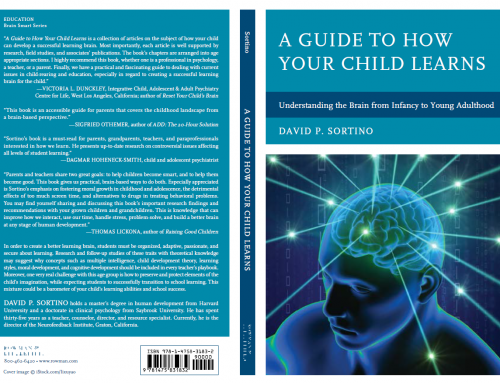Parents of ADHD (attention deficit hyperactivity disorder) children often approach each school year with a degree of trepidation and disillusionment. They question: “Is my child truly ADHD or is it a developmental disorder that he/she will grow out of”? Worse, “If he/she has ADHD, do I medicate now and not worry about the potential negative side effects?”
In 2011, the prevalence of attention-deficit/hyperactivity disorder in children ages 4 to 17 years was 11%, with 6.4 million children diagnosed with ADHD and 4.2 million taking psycho stimulants (CDC, 2013). This is a dramatic increase from more than 30 years ago, when the rate of attention-deficit/hyperactivity disorder (ADHD) was estimated at between 3% and 5%. And the prevalence of ADHD increased by about 35% from 2003 to 2011 and is still rising. In fact, more than 20% of high school-aged boys have been diagnosed as having ADHD (2013, New York Times).
Complicating parents’ disillusionment about ADHD and medication are the drug companies’ aggressive marketing which has extended the image of classic ADHD to include relatively normal behavior like carelessness and impatience, and has often overstated the pills’ benefits which has also lead to over diagnosis (New York Times, 2013).
The problem with stimulant medication is that it can cause any number of serious problems with children’s brains. According to ISMP (2014) studies of a list of 15 potential drugs causing serious side effects, the list includes the three most popular medications for ADHD: Concerta, Ritalin and Strattera. The following side effects associated with the three drugs are: suicidal behaviors, retarded growth, and some manifestations of psychosis, aggression, cardiac arrest and weight loss or affected growth.
However, a University of Cambridge study (BCNI, 2013) questions past research which suggests that ADHD is the result of fundamental abnormalities in dopamine transmission. Instead, the study defines the main cause of ADHD may lie instead in structural differences in the brain’s grey matter which is responsible for decision making, focusing, language development, etc. Patients with ADHD, who had significant loss of grey matter in the brain, as measured by MRI (magnetic resonance imaging) and PET (positron emission topography), showed significant impairments in attention performance compared with healthy individuals (University of Cambridge, 2013).
In a recent publication, Emily Deans (M.D,) suggests that iron is a key component to the brain’s grey matter and vital for normal brain development and human behavior. It is a key co-factor in the making of neurotransmitters in the brain that affect neuron signaling, including serotonin, norepinephrine and especially dopamine (Psychology Today, (2015). Further, studies show that ADHD in children is associated with low levels of serum iron and ferritin, compared to a control groups of children without ADHD who had normal levels of serum iron and ferritin. In short, iron supplementation has also been shown to improve symptoms of ADHD (Deans, E., Psychology Today, 2015).
Professor Trevor Robbins, co-author of the Cambridge Study believes that her findings question the previously accepted view that major abnormalities in dopamine function are the main cause of ADHD patients. She goes on to say, “while the results show that Ritalin has a therapeutic effect to improve performance, it does not appear to be related to fundamental underlying impairments in the dopamine system in ADHD” (Brain, 2016).
Parents need to be the final deciders about the harmful effects of medication versus simply using vitamin supplements. Researchers have determined that ADHD may not be the result of abnormalities in dopamine transmission but rather the result of structural differences in the brain’s grey matter. Popular ADHD medications such as Ritalin, Strattera and Concerta have proved to be particularly dangerous to children’s brains. Again, current research suggests that parents take a different approach and address the grey matter of the ADHD brain and the possible benefits of iron supplements. David Sortino, Ph.D., a Graton resident, is director of The Neurofeedback Institute: Go to his blog and/or email him: neurofeedbackinstitute.blogspot.com
ADHD Research Support for Parents
(Visited 12 times, 1 visits today)


